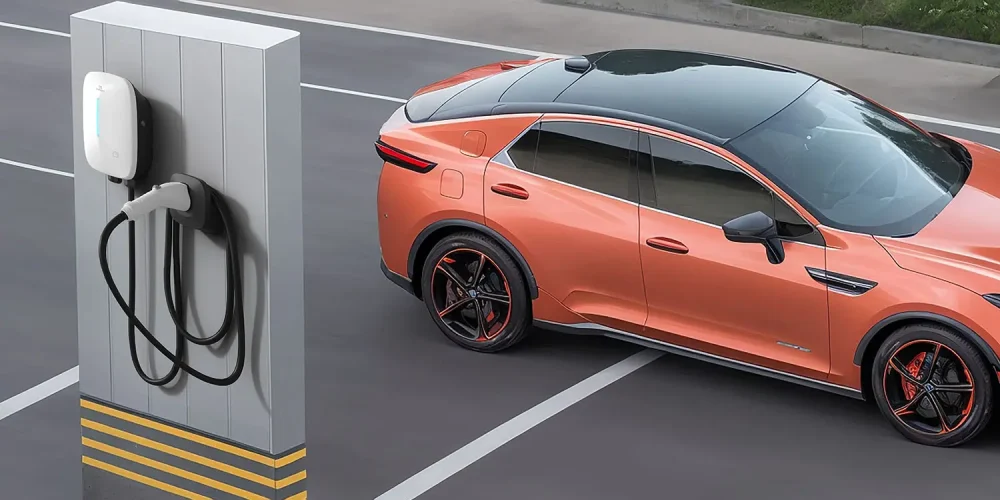
Electric vehicle adoption is on the rise, and so is the need for EV charger installation at home. But to get one installed, there’s that big question: Do you need a ev charger permit for this?
If you’re wondering whether installing an EV charger at home requires a permit in the U.S., the answer is usually yes. Particularly if you’re looking at significant alterations to your home’s electrical setup. This permit assures the whole installation is safe, compliant with the National Electrical Code (NEC), and would not cause issues (or fines) down the line.
So, what does that actually mean for your installation? We’ll be breaking it all down in this article. So let’s get into it…
When is an EV Charger Permit Required at Home?
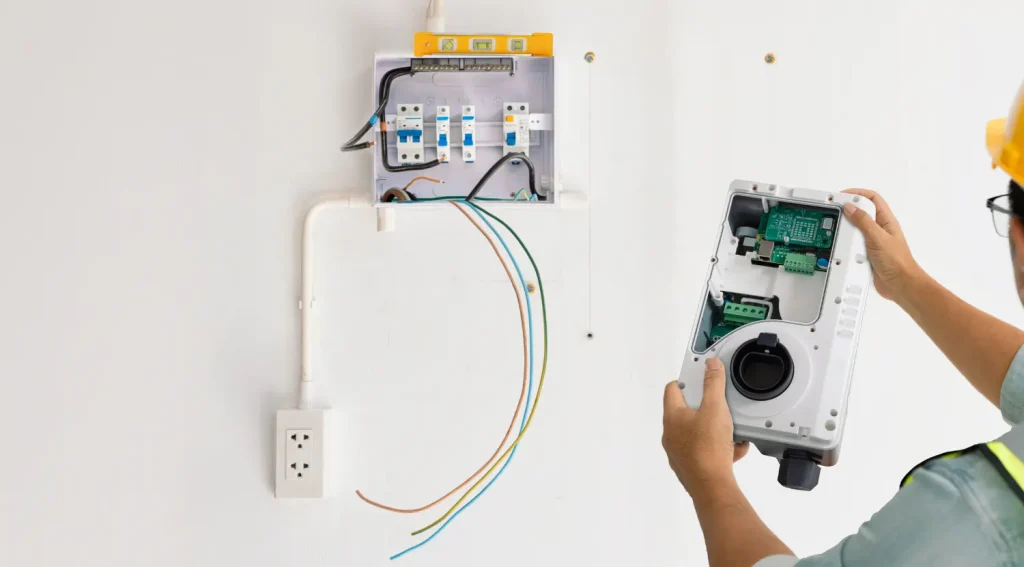
Most households in the U.S have a 120V electrical system. However, a Level 2 charger operates on a 240V, so it usually requires:
- A dedicated 240V circuit.
- A higher-capacity circuit breaker.
- Hardwiring the charger directly into your electrical panel.
- An electric panel upgrade (in some cases).
As this involves significant modifications to your home’s electrical system, a permit and an inspection are required to ensure compliance with local codes.
The same logic applies to any structural alterations. Eg. If you have to trench in your yard to run a line or make major changes to your garage, you’ll need a permit for that, too.
That being said, if you don’t want the headache of getting a permit and installation, you can opt for a Level 1 EV charger instead. You can plug it directly into a standard 120-volt wall outlet, just like your toaster. Since it does not require any complex modifications, a permit generally is not needed. However, the charging speed is considerably slower as compared to the Level 2.
Check this guide to understand the difference between Level 1 And Level 2 EV chargers.
Who Issues the Home EV Charger Permit?
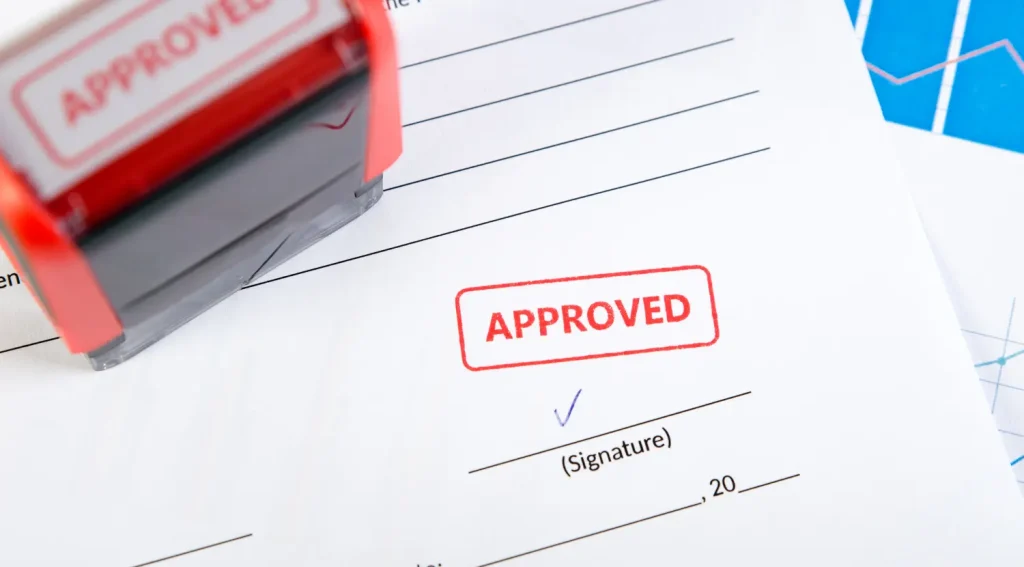
In nearly all cases, the primary authority is your local government. Your city or county’s Building & Permit Department is responsible for enforcing electrical and building codes, issuing the permit, and performing the final inspection.
While states generally rely on this local process, some (like California and New York) have created statewide guidelines. These are not separate permits but are designed to help local offices streamline and expedite your application.
For example, in California, homeowners can apply for an electrical EV charger permit through the Los Angeles Department of Building and Safety (LADBS), which offers an online portal for same-day permit approval if no major panel upgrade is needed.
Similarly, Florida’s Miami-Dade County provides an express residential ev charger permit process that allows homeowners to submit documents digitally and receive approval within a few business days. These state-level programs make the installation process much faster and ensure compliance with both local and national codes.
Additionally, you will likely need to involve your electric utility. Because a Level 2 charger draws significant power, most utilities require their approval before installation to validate the grid can manage the demand.
To begin, your first step is to contact your local permitting office. They will provide the specific requirements for your project and clarify which departments, such as zoning or electrical, need to review your application.
Related: A Guide to EV Charging Stations for Condos and Apartments
How to Get a Level 2 EV Charger Permit?
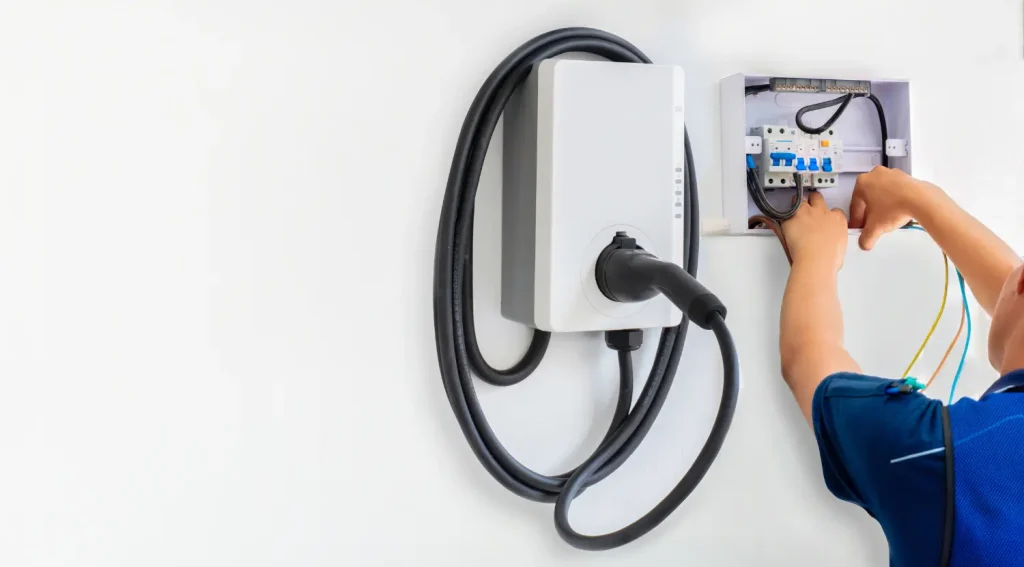
While specific rules can vary by location, the process for obtaining a Level 2 EV charger permit follows a clear, structured path. It’s a multi-step process that moves from initial research to a final, approved inspection.
Here’s a general step-by-step breakdown of what to expect.
1. Determine Local Requirements and Hire an Electrician
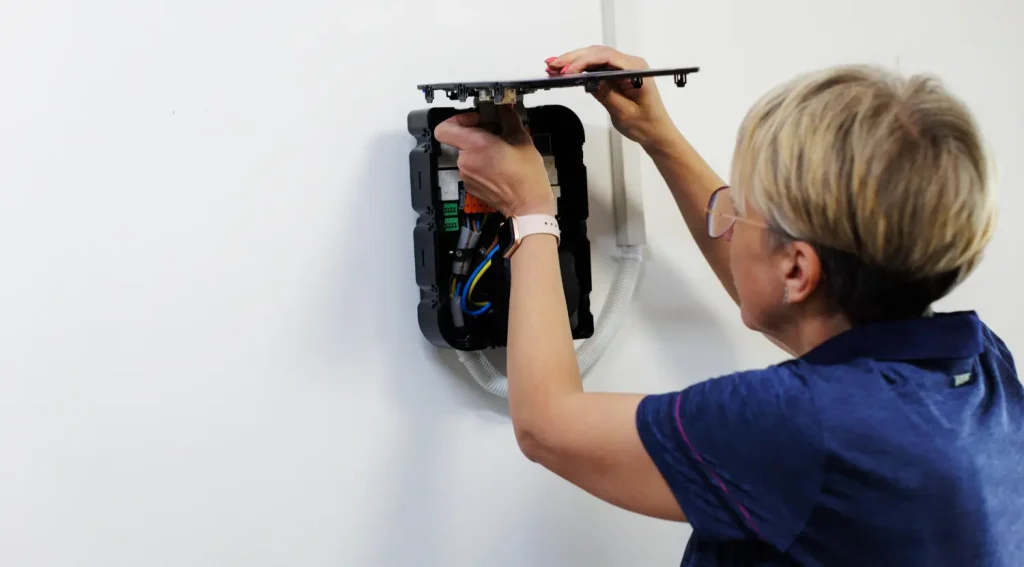
Your first action is to connect with your local permitting office (city or county). Their website or staff will provide the specific application forms, requirements, and checklists for your project.
In most jurisdictions, you are required to hire a licensed electrician. It is best to engage this professional early in the process. They are essential for performing a “load calculation”—a critical assessment to confirm your home’s existing electrical panel can safely handle the significant, sustained power draw of a Level 2 charger.
2. Prepare and Submit Your Application
To prevent common delays, it is crucial to submit a complete and accurate application.
You or your electrician will typically need to provide the following:
- The completed permit application form.
- A simple site plan or electrical schematic showing the charger’s location and wiring.
- The manufacturer’s technical specification sheet for your chosen EV charger.
- The electrician’s load calculations and often proof of their contracting license.
Applications can usually be submitted online or in person. Upon submission, you must pay the permit fee, which generally could range between $50 and $300 for a residential installation.
3. Review, Installation, and Final Inspection
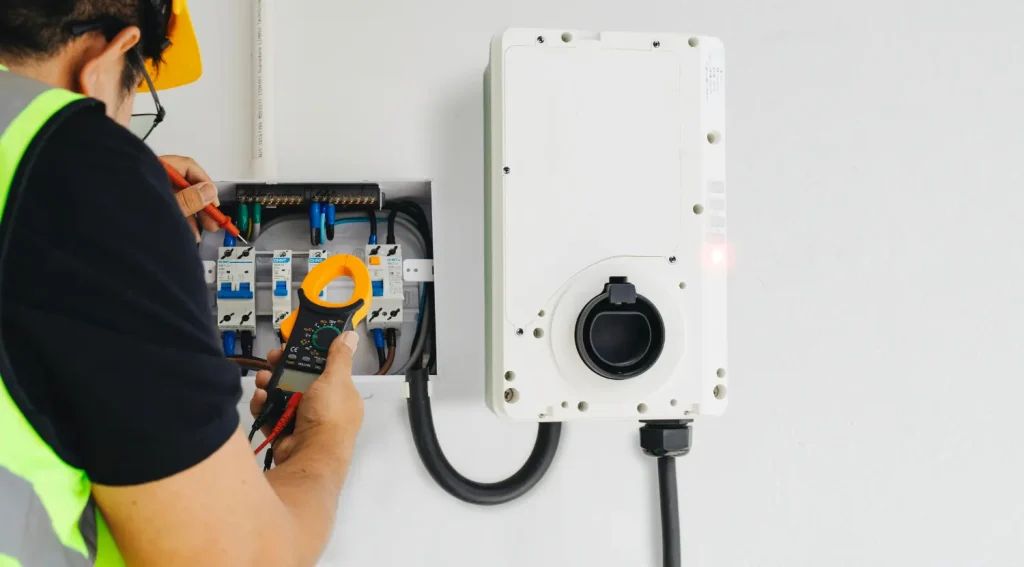
The local building department will review your application to ensure it complies with local building codes and the National Electrical Code (NEC). This review process could take a few weeks.
Once you receive the approved permit, your electrician can legally begin the installation. After the work is finished, you must schedule a final inspection. A city or county inspector will visit to verify that the installation is safe and matches the approved plans. Having your electrician present for this inspection is highly recommended. Once it passes, your permit is complete.
Also read: Level 2 EV Charger Installation Cost: What To Expect At Home
The Risks of Skipping EV Charger Permit
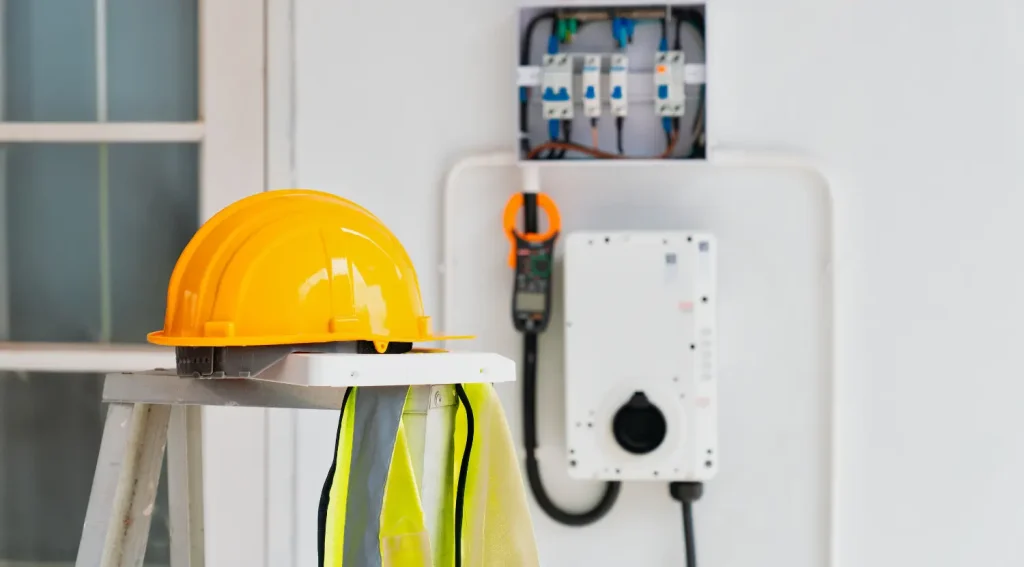
You might be thinking “What if one just bypasses the permit process to save time and money?” Well, that’s quite a shortcut. But quite frankly, this would not just be a violation, but also mean taking on significant risks. Let us explain why…
- Severe Safety Hazards: A Level 2 charger is a high-voltage appliance, and an unverified installation could lead to electrical malfunctions or in the worst-case scenario, a fire. Speaking of which, obtaining a permit ensures your installation is reviewed and inspected for compliance with local and National Electric Code.
- Costly Financial Penalties: If an unpermitted installation is discovered by the authorities, you can face heavy fines and may even be legally required to dismantle the entire unit. You will then have to pay to get the job redone correctly, costing far more than the initial permit.
- Home Insurance Complications: Most home insurance policies require all electrical work to be code-compliant. An unpermitted EV charger installation could void your coverage, leaving you unprotected if a malfunction or fire occurs.
- Negative Impact on Property Value: If ever you decide to sell your home, or perhaps to rent it, the lack of a permit becomes a liability. It can lower your property’s value, deter potential buyers, and seriously complicate the sale or rental.
In Closing
So, there you have it! We hope this guide helped clear things up for you.
The bottom line is, if you’re planning to install a Level 2 EV charger at home, getting a ev charger permit is mandatory.
And remember, a correct installation is one thing, but installing the right charger is a huge deal, too. You should always get a certified EV charger for your home, and at Duevolt, that’s exactly what we provide. Feel free to check out our range of Home EV Chargers.
If you’re not sold on a full installation, we’ve still got you covered with our portable range.
Still have questions? Just drop a comment down below!
